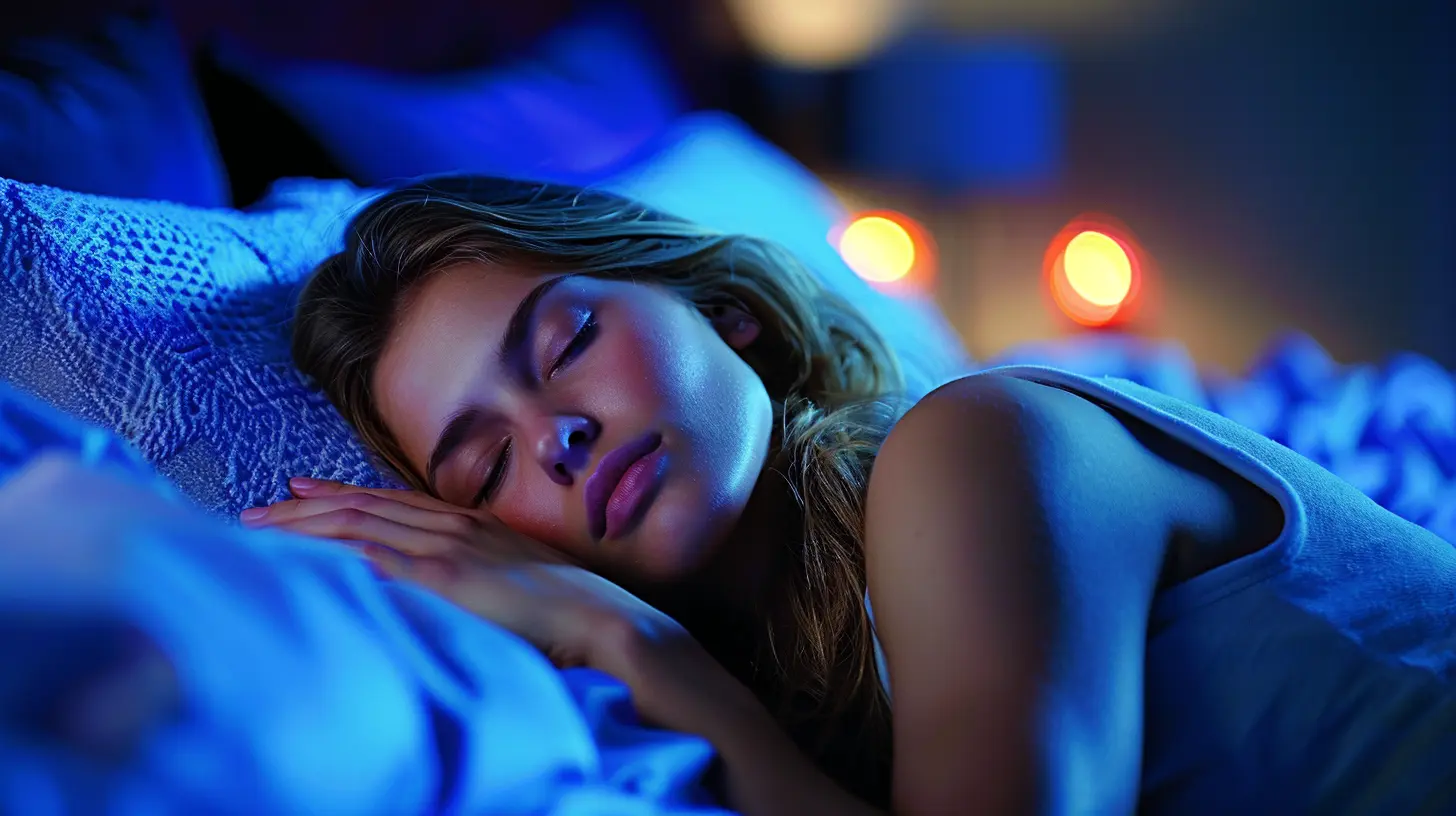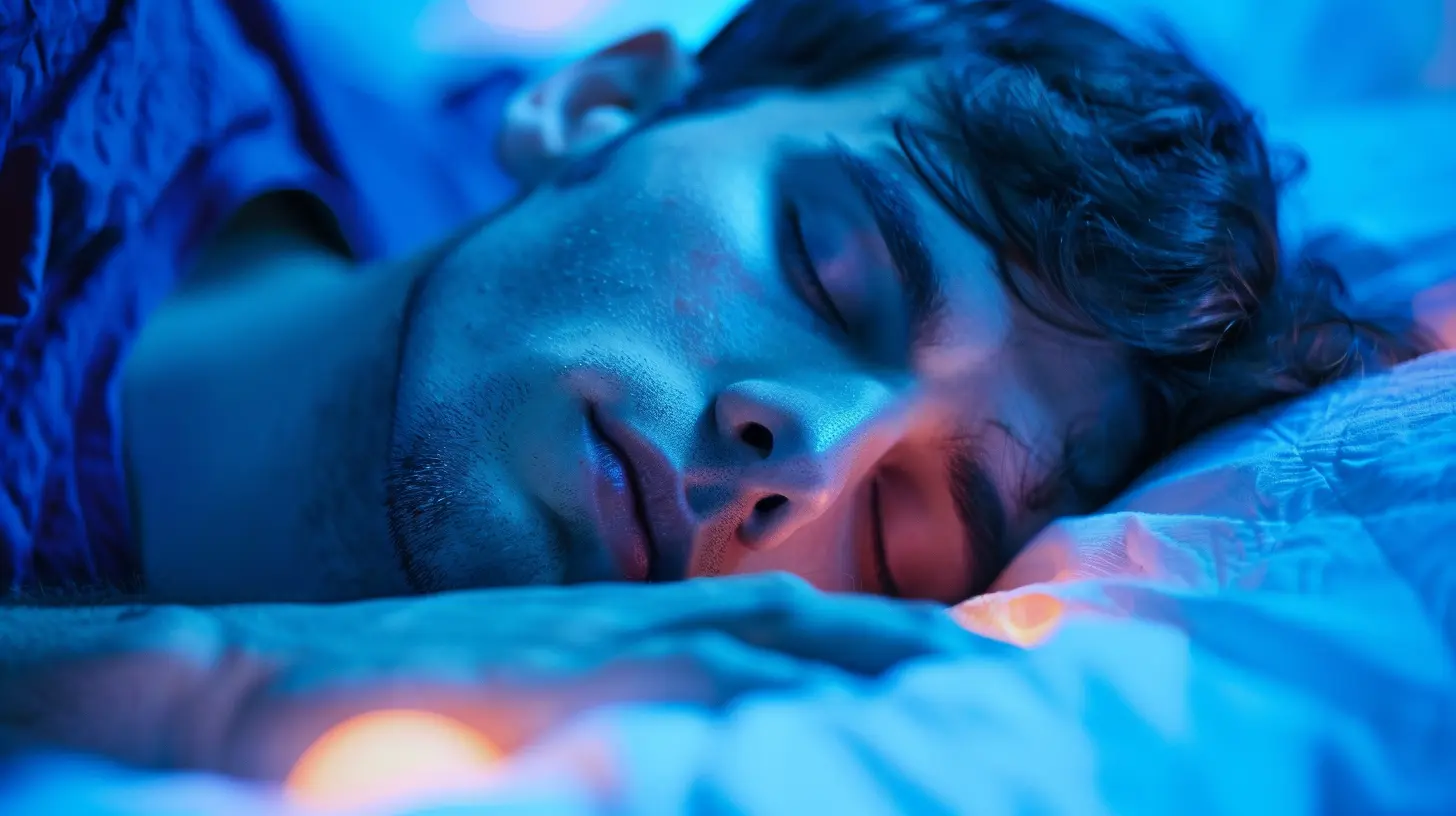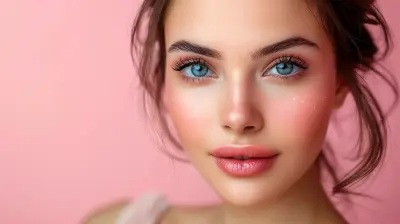The Impact of Blue Light on Your Sleep Cycle
19 May 2025
Let’s be honest—most of us are glued to screens all day long. Whether you're scrolling through Instagram before bed, binge-watching your favorite series, or replying to late-night emails, screens have become an inseparable part of our lives. But have you ever stopped to wonder how this “digital love affair” might be messing with your sleep?
If you’ve been tossing and turning at night, your phone or laptop might be the sneaky little culprit. The bright, crisp light coming from your screen—yep, blue light—can seriously interfere with your sleep cycle. Let’s break down how that happens and what you can actually do about it without giving up your tech (because... let’s be real, who’s giving that up?).
What Is Blue Light Anyway?
Alright, quick science lesson—but don’t worry, I’ll keep it simple.Light comes in different colors, each with its own wavelength and energy. Blue light has a short wavelength and more energy compared to other visible light. It’s everywhere—sunlight is actually the biggest source of blue light. But the artificial blue light from digital screens, LED lights, and fluorescent bulbs is what’s causing all the sleep-related buzz lately.
So, is blue light evil? Not quite. It’s all about when and how much you're exposed to it.
Why Does Blue Light Mess With Your Sleep?
Here’s the kicker: your body has an internal clock called the circadian rhythm. It’s your natural sleep-wake cycle, and it’s super sensitive to light. Think of it as your brain’s personal calendar telling your body when it’s time to be alert and when it’s time to wind down.During the day, blue light is actually helpful—it boosts alertness, attention, and mood. But when you're exposed to it at night, things go sideways. That blue light tells your brain, “Hey, it’s still daytime! Stay awake!” That’s when your melatonin levels (your sleepy-time hormone) take a nosedive.
So basically, blue light at night confuses your brain. It's like trying to sleep while someone keeps shouting, “Wake up, it's morning!”
How Bad Is It? The Real-Life Impact
Let’s dig a bit deeper.1. Falling Asleep Gets Harder
Blue light suppresses melatonin production, which delays feelings of sleepiness. Instead of drifting into dreamland within minutes, you’re tossing and turning, your brain buzzing like Times Square at night.2. Sleep Quality Drops
Even if you do fall asleep, it might not be the deep, restful sleep your body craves. You’re more likely to wake up during the night and feel like a zombie the next morning—even if you technically got 7-8 hours.3. Your Circadian Rhythm Becomes a Hot Mess
When your circadian rhythm gets out of sync, it doesn’t just mess with your sleep. It can affect your digestion, hormone production, mood, immune function—the whole shebang.4. You Start a Bad Cycle
Poor sleep leads to fatigue. Fatigue makes you reach for more screen time for entertainment or productivity. That leads to more blue light exposure… and boom, you're stuck in a never-ending loop of bad sleep.
Blue Light Exposure Sources You Probably Didn’t Think About
We usually blame our phones and laptops, but there's more to the story.- LED light bulbs – These are energy-efficient but emit a decent amount of blue light.
- Flat-screen TVs – Yup, late-night binging isn’t just hurting your social life.
- Tablets and e-readers – Night-time reading used to be relaxing, but if you’re reading from a screen, it may be doing more harm than good.
The Science Backs It Up
Still skeptical? Fair enough—let’s look at the research.A study published in the journal Proceedings of the National Academy of Sciences found that people who read from a light-emitting e-reader before bed took longer to fall asleep, had reduced evening sleepiness, and produced less melatonin than those who read from a printed book. And get this—they felt sleepier in the morning even after a full night's sleep.
Another study by Harvard researchers showed that blue light exposure before bedtime shifted circadian rhythms by over three hours. That’s enough to make you feel like you're permanently jet-lagged.
So yeah, the science is pretty clear: when it comes to sleep, blue light is not your friend.
Signs Your Sleep May Be Affected by Blue Light
If you’re wondering whether blue light is messing with your sleep, answer these:- Do you find it hard to fall asleep even when you're really tired?
- Do you feel drowsy during the day no matter how many hours you slept?
- Do you wake up at night, unable to fall back asleep?
- Do you reach for your phone or laptop right before bed—or worse, in bed?
If you said “yes” to most of these, blue light might be playing a role.
So... What Can You Actually Do About It?
Okay, now that we’ve scared you a bit (sorry, not sorry), let’s talk solutions. Because you don’t actually have to become a screen-free monk to fix this.1. Use Blue Light Filters
Most modern devices have built-in features like “Night Shift” (Apple), “Night Light” (Windows), and “Night Mode” (Android). Turn them on! They reduce the intensity of blue light and shift the color tone to warmer hues.There are also apps like f.lux for your computer, which adjust screen color based on the time of day.
2. Invest in Blue Light Glasses
They might look geeky, but they work. Blue light blocking glasses filter out the harmful rays and can make a noticeable difference—especially if you're staring at screens all day for work or school.3. Establish a Screen Curfew
Try shutting off screens at least 1–2 hours before bed. Sounds hard, but your sleep is worth it. Swap the screen for a book, take a warm bath, journal, or listen to calming music.4. Switch to Red or Dim Lighting at Night
Red light has the least power to shift circadian rhythm and suppress melatonin. Consider swapping your late-night bulbs for warmer colors.5. Practice Good Sleep Hygiene
This includes:- Sticking to a consistent sleep schedule (yes, even on weekends)
- Creating a cool, dark, and quiet sleep environment
- Avoiding caffeine late in the day
- Keeping your bed for sleep and intimacy only—no scrolling!
But Wait—Is Any Blue Light Actually Good?
Surprisingly, yes!Morning exposure to natural sunlight (which includes blue light) helps regulate your circadian rhythm and improves mood. So don’t shy away from sunlight; just avoid artificial blue light after sundown.
It’s all about timing.
Can Kids and Teens Be Affected Too?
Absolutely—and in many ways, they’re even more vulnerable.Kids and teens are still developing, and their melatonin production can be more heavily influenced by blue light. Plus, they tend to use screens before bedtime (hello TikTok and gaming marathons). For them, poor sleep can affect academic performance, mood, and behavior.
So if you’re a parent, setting screen-time boundaries is more important than ever.
Final Thoughts: It’s Not About Fear—It’s About Balance
Look, we’re not here to scare you into throwing your smartphone out the window. Technology isn't going anywhere. But understanding how blue light affects you gives you the power to make better choices.Picture your body like a symphony—it needs everything in rhythm to work smoothly. Blue light is like that extra drumbeat that throws everything off if it comes in at the wrong time. By managing your exposure, especially at night, you help your body's internal clock stay on beat.
So go ahead, embrace your screens—but maybe give them a curfew. Your sleep (and sanity) will thank you.
Quick Tips Recap:
- Turn on night mode on all devices.- Wear blue light blocking glasses.
- Avoid screens 1–2 hours before bed.
- Opt for dim, red lighting in the evening.
- Stick to a regular sleep schedule.
all images in this post were generated using AI tools
Category:
Sleep DisordersAuthor:

Angelo McGillivray
Discussion
rate this article
3 comments
Odessa Kirkpatrick
This article effectively highlights the effects of blue light on sleep, offering valuable insights into how screens can disrupt our circadian rhythms. It serves as a helpful reminder to prioritize good sleep hygiene in our digital age.
May 23, 2025 at 3:28 AM

Angelo McGillivray
Thank you for your thoughtful feedback! I'm glad you found the insights valuable and hope they help promote better sleep hygiene in our digital lives.
Dax Tucker
Thank you for shedding light on the effects of blue light on sleep. I appreciate the insights and practical tips you've shared. This information is crucial for improving our nightly rest.
May 21, 2025 at 3:08 AM

Angelo McGillivray
Thank you for your kind words! I'm glad you found the insights helpful for improving your sleep.
Amanda Wolfe
Great article! Understanding how blue light affects our sleep is so important in today's digital age. Simple changes can make a big difference in our sleep quality. Thanks for sharing these valuable insights!
May 20, 2025 at 2:38 PM

Angelo McGillivray
Thank you for your kind words! I'm glad you found the article helpful. Small changes can indeed lead to better sleep!



